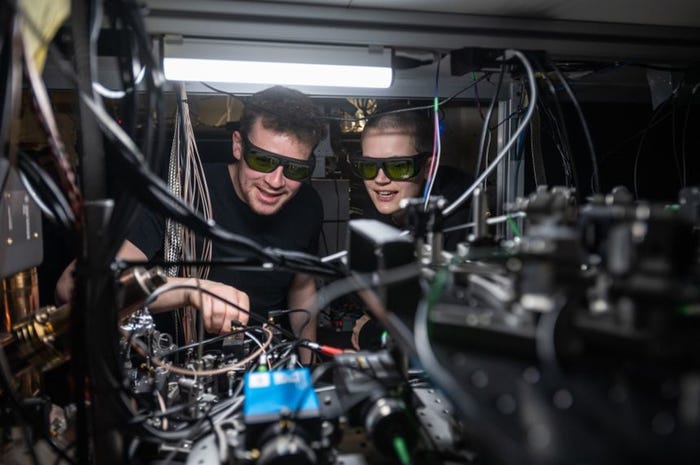
Connects decision-makers and solutions creators to what's next in quantum computing
Quantum Computing Gets HotterQuantum Computing Gets Hotter
Diraq nudges qubit operating range 1 Kelvin higher saving money and energy

Australian quantum computing company Diraq has demonstrated that its silicon dot spin-based quantum processors can operate accurately at temperatures 20 times warmer than comparable technologies.
Several types of quantum computer processing chips need to be kept at temperatures close to absolute zero, or 0 Kelvin (-457.67 Fahrenheit ) to keep the qubits stable and deliver accurate results. This needs advanced cooling technology that can be expensive and energy inefficient to run.
The team reported in a peer-reviewed paper in Nature that its quantum computer returned accurate results at temperatures above 1 Kelvin. While this is still very cold – just 1.8 F above absolute zero – this is warm enough for conventional electronics to operate.
This makes it possible to run the error correction routines required for fault-tolerant quantum computing. Until now, the heat generated by controlling qubits presented a fundamental challenge to scaling quantum devices.
According to the researchers, this could lead to more powerful, cost-effective and energy-efficient quantum computing systems being available sooner.
“This temperature increase, although difficult to grasp when compared to conventional temperature concepts, is actually ground breaking in the realm of quantum computing,” said lead study author and Diraq research associate Jonathan Huang.
“Our advanced engineering achievement involved a deep understanding of physics as well as the experimental curiosity to push the boundaries of engineering design.”
The breakthrough means that quantum computers can be developed without the need for expensive, complex dilution fridges. It offers a practical route to scaling quantum computers so they can operate enough error-corrected qubits to solve real-life problems.
“While our quantum processors still require refrigeration, the costs and complexity of the overall system are dramatically reduced at these elevated temperatures,” said Diraq CEO and Founder Andrew Dzurak.
“Harnessing the power of ‘hot qubits,’ these quantum computers will enable calculations far beyond the reach of supercomputers that exist today, enabling faster and more accurate predictions and analysis. This will also save costs and energy when running calculations to solve problems of global significance, generating significant economic outcomes.”
Read more about:
AsiaAbout the Author
You May Also Like






